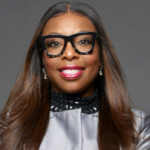Michael Solomon

Michael “wrote the book” on understanding consumers.
Topic Categories:
Fee Range: Contact Speaker Exchange Agency
- Michael is one of the country’s foremost experts on Marketing-Consumer Behavior…and whereas there are literally hundreds of Marketing Speakers in the lecture-series circuit…there are considerably less that can speak on Consumer Behavior and knock the ball out of the park.
- Michael is an in-demand, acclaimed lecture-series Keynote and Seminar Speaker
- He is a tenured professor at the Haub School of Business at St. Joseph’s University
- He is a highly sought out Consumer Behavior consultant through his boutique firm Mind/Share by Fortune 500 and media companies and, higher-learning institutions alike.
- He is a prolific (text)book author, developer of online course curriculum and blogger
*Fee ranges are presented as a guideline only. Speaker fees are subject to change without notice. For an exact quote, please contact your Speaker Exchange Agency representative.
Michael is passionate about the extraordinary world of the ordinary consumer. He brings humor and arresting visuals to his keynotes to show how everyday behaviors are much more meaningful than you thought – and an essential pathway to grabbing the attention and loyalty of your customers. The marketing guru Philip Kotler summed it up when he stated, “Solomon has the mind of a scientist and the writing flair of a journalist.
Michael “wrote the book” on understanding consumers. Literally. Hundreds of thousands of business students have learned about Marketing from his books including Consumer Behavior: Buying, Having, and Being — the most widely used book on the subject in the world.
Michael’s mantra: We don’t buy products because of what they do. We buy them because of what they mean. He advises global clients in leading industries such as apparel and footwear (Calvin Klein, Levi Strauss, Under Armour, Timberland), financial services and e-commerce (eBay, Progressive), CPG (Procter & Gamble, Campbell’s), retailing (H&M), sports (Philadelphia Eagles), manufacturing (DuPont, PP&G) and transportation (BMW, United Airlines) on marketing strategies to make them more consumer-centric. He regularly appears on television shows including The Today Show, Good Morning America and CNN to comment on consumer issues, and he is frequently quoted in major media outlets such as The New York Times, USA Today, Adweek and Time.
As a Professor of Marketing (in the Haub School of Business at Saint Joseph’s University in Philadelphia) and an industry consultant, Michael combines cutting edge academic theory with actionable real-world strategies. He helps managers get inside the heads of their customers so they can anticipate and satisfy their deepest and most pressing needs – today and tomorrow. An executive at Subaru said it best: “The man is a scholar who is current and street-wise.”
The Pandemic will change our world for years after the virus disappears. We’ll have to rethink and modify our purchase decisions, large and small. Some disruptions in consumer/marketer relationships that already were looming will come faster and more decisively. How do we define brand value? How should companies talk to customers? How do people function in an emerging gig economy where every encounter might be fatal? How do we redefine what it means to go to work or to socialize?
You’ll learn why you need to step on the GAS to modify your offerings in light of the new drivers of consumer behavior.
Everyone is buzzing about Artificial Intelligence these days, as well as they should. Machines that “think” for us already are transforming how we work, play – and shop. McKinsey tells us that some 29 million U.S. homes used some form of smart technology last year, and that number grows by over 30 percent a year.
Many organizations now deploy robots, avatars and chatbots to perform tasks we used to ask flesh-and-blood people to do. This suddenly makes the age-old question of what makes us human much less theoretical. Self-driving cars threaten to replace truck drivers. IBM’s Watson beats chess masters and veteran Jeopardy game show contestants. Movies and TV shows like Blade Runner, Westworld, and Humans that focus on the civil rights of synths, replicants and androids are center stage in popular culture. Alexa and Siri are our new guardian angels.
The customer is king (or queen). Yet the best product or service will fail if consumers don’t have a positive encounter when they consume it. That’s because what you sell is NOT a product – it’s an experience that consists of the core offering plus everything that goes with it. This includes the physical or digital environment where shoppers find it, the people who sell it, and even how others react to the purchase. This experience is what attracts – or repels – the customer. With so many options available, he or she will quickly walk away from a negative encounter. But he or she also will reward organizations that provide satisfying experiences with long-term loyalty.
This fundamental insight is what is drives increased interest in customer experience management (CEM or CXM). A growing number of organizations now recognize the importance of tracking every interaction with customers as if it is their last – because it could be. You’ll get a thorough overview of today’s consumer, and the major issues we need to understand in order to create and maintain a positive customer experience over the long-term.
That insight is crucial for any industry that touches consumers. Customers literally choose from thousands of options – and most of them have very little to do with functionality. However, that doesn’t make these decisions unimportant by any means. The selection of a watch, a bracelet, a pair of glasses or many other items reflects deep-seated values and beliefs about appearance and the consumer’s identity. We can think of the body as a canvas, where the shopper chooses from a “palette” of accessory items, apparel, footwear, cosmetics and other products to paint a picture s/he wants the world to see at a fixed moment in time. Marketers need to dig deeper if they want to sync their offerings with what their customers seek.
In this presentation, we’ll look at some of the powerful cultural forces that influence how consumers use a range of products to make “statements” about themselves.
U.S. Millennials spend $600 billion per year, but their choices change faster than Lady Gaga changes her outfits. How can you adapt to connect with these “always on” but always changing shoppers?
Want to bring Michael Solomon to your next event? Please tell us a little about your event, and we will get back to you shortly!




